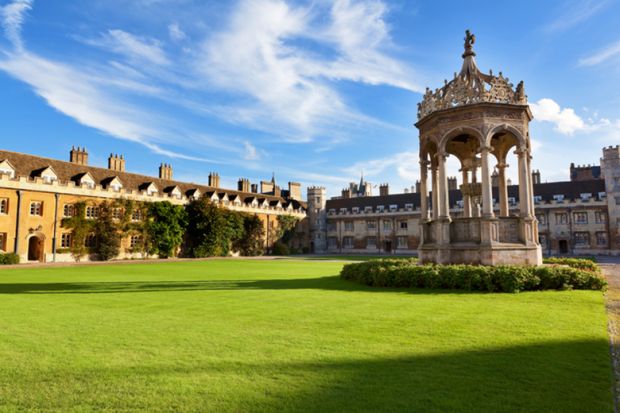
The apparent elitist nature of Oxbridge and other top universities has again come under scrutiny following the release of new research showing that numbers of black and minority ethnic (BME) and lower socio-economic students at the University of Oxford and the University of Cambridge remain depressingly low.
Figures obtained by a Freedom of Information request from the Labour MP David Lammy revealed that students from certain areas in the UK and certain ethnic backgrounds were more likely to be admitted to Oxbridge than others.
According to the statistics, 13 colleges at Oxford failed to make a single offer to a black A-level candidate between 2010 and 2015. Additionally, it was found that students from London and the South East of England received 48 per cent of offers from both Oxford and Cambridge, while students from the Midlands received just 11 per cent of Oxford offers and 12 per cent of Cambridge offers.
Fingers have been pointing the blame in many different directions, but I am firmly within one school of thought on this story: the solution must be multi-pronged.
There is no denying that Oxbridge and other such elite universities around the world have a reputation for having a student body made up, in the majority, of rich, white, well-connected folk.
It is often this reputation that deters BME and less advantaged students from even applying to such universities because they are made to feel as though they “don’t belong there”. And if many such young people are not applying, of course very few will end up actually enrolling.
This is where a big part of the problem lies. It’s not just the universities themselves (although they should take charge in helping to remove this reputation); it’s also this image – this stereotype that continues to be repeated and reinforced in the media and in politics – that high-ranking universities are for only a certain group of people.
Instead of spending time and energy pointing out how few Oxbridge students have a disadvantaged or BME background, there should be a concerted effort across the board to convince young people from all demographics that Oxbridge is not only within their reach but is welcoming and eager to have them.
Can you answer these Oxford University interview questions?
How to choose a UK university
Dispelling the myths around elite universities
Life at the University of Cambridge
One of THE’s student bloggers, Lili Bidwell, wrote article about studying at the University of Cambridge. She opened her blog by saying: “I had only ever heard of geniuses going to Cambridge and I did not think that I stood much of a chance competing with them.”
She then says: “I assumed that everybody would be privileged, rich, super-intelligent and work-obsessed. Judging by the reactions I received when people heard that I was going to Cambridge, others thought in the same way that I did. Thankfully, I was wrong about this stereotype.”
Another of our bloggers, University of Oxford graduate Adam Wicks, said that his former school in Norfolk (where university application rates are low) invited him back to speak to current students about his experience at Oxford; he found that trying to convince students to apply to university was “an uphill battle”.
While both these bloggers are white, both approached Oxbridge with the fear that they were not up to the task and would not fit in – and that is ultimately one of the biggest factors in discouraging young people from applying.
Schools and certain geographical areas where applications to Oxbridge are historically low can benefit from having current Oxbridge students return to speak candidly about their experiences. These schools should be helped to offer one-to-one support to prepare their high-achieving students for the Oxbridge application process.
If the schools themselves are unable to do this, they can direct students to organisations that have been set up to provide such assistance. Target Oxbridge is a free programme that offers black African and Caribbean students advice and guidance from black or ethnic minority Oxbridge graduates to help increase their chances of gaining a place.
The initiative has already helped 46 students to secure Oxbridge places.
Adam closed his blog with the line: “no student should think they do not deserve, or would not be able to apply to, a prestigious university.”
This vitally important and positive message should be the prominent narrative delivered to young people applying to university, not the negative refrain that only a certain type of student should set their sights on the best that higher education has to offer.
Required Reading is the regular blog from Times Higher Education student editor Seeta Bhardwa
Read more: Top 7 qualities universities look for in student applicants



















Have your say